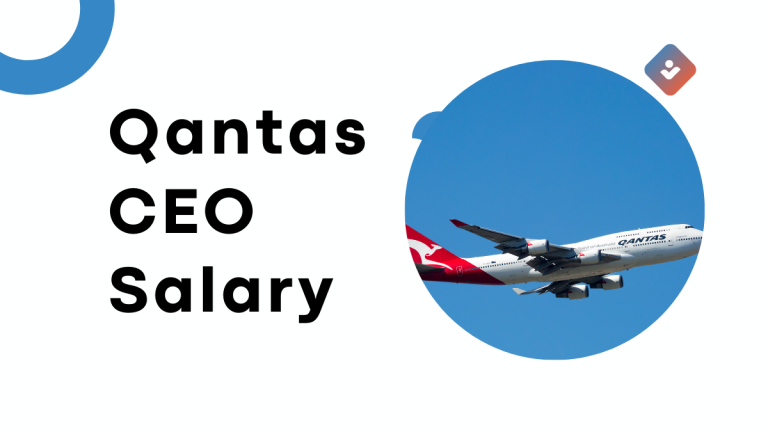Understanding the Average CEO Salary in Australia
Are you curious to find out what it takes to reach the pinnacle of corporate success in Australia? Well, look no further! In this blog post, we delve into a topic that has always captivated professionals and aspiring business leaders alike: the average CEO salary in Australia.
Join us on this intriguing journey as we unravel the mysteries surrounding executive compensation and gain valuable insights into the financial rewards awaiting those who ascend to the helm of Australian companies. Get ready to be informed, astounded, and inspired by these eye-opening revelations about one of society’s most coveted positions!
Factors that influence CEO salaries
Several key factors can influence the salary of a CEO in Australia. While there is no one-size-fits-all answer to how much a CEO should be paid, understanding these factors can provide valuable insight into the average CEO salary in the country.
- Company Size and Industry:
One of the most significant factors that determine CEO salaries is the size and industry of the company they lead. Generally, larger companies tend to have higher revenues and profits, which translates into higher compensation for their top executives. In contrast, smaller companies may offer lower salaries due to their limited financial resources.
Moreover, industries such as Finance, technology, and healthcare typically offer higher CEO salaries compared to others. This is because these industries are often more competitive and require strong leadership skills to navigate complex markets.
- Company Performance:
The performance of a company also plays a crucial role in determining executive compensation. A successful CEO who has led a company through periods of growth and profitability is likely to receive higher pay than one who has overseen stagnant or declining performance.
Similarly, if a company experiences difficulties or poor performance during a CEO’s tenure, it may result in lower bonuses or even pay cuts for the executive team.
- Experience and Qualifications:
CEOs with extensive experience in their field or those who have successfully led other companies are likely to command higher salaries. This is because they bring valuable knowledge and expertise to the table that can significantly impact the success of an organization.
Comparison of CEO salaries in different industries
The role of a CEO is one of immense responsibility and influence in any industry. They are responsible for setting the strategic direction of the company, making important decisions, and leading their teams towards success. As such, it is not surprising that CEOs are among the highest-paid individuals in any organization.
However, CEO salaries can vary greatly depending on the industry they work in. In this section, we will explore and compare the average CEO salaries across different industries in Australia.
- Banking and Finance: – It is no surprise that CEOs in the banking and finance industry earn some of the highest salaries in Australia. The complexity and high stakes involved in managing large financial institutions contribute to these high salaries. According to recent reports, the average salary for a CEO in this sector ranges from $2 million to $10 million per year.
- Technology: CEOs in the technology sector are also well-compensated for their roles. With rapid advancements and innovations constantly shaping this industry, CEOs are expected to navigate through complex landscapes while driving growth and profitability. On average, a technology CEO earns around $1 million to $5 million annually.
- Healthcare: The healthcare industry is another highly regulated field where CEOs play a critical role in providing quality care while maintaining financial stability for their organizations. As such, they are rewarded with substantial salaries ranging from $500k to $3 million per year.
- Retail: CEOs in retail companies are tasked with staying ahead of consumer trends while ensuring profitability for their brands amidst fierce.
The gender pay gap in CEO salaries
The gender pay gap has long been a topic of discussion and debate in workplaces around the world, and CEO salaries are no exception. In fact, the disparity between male and female CEO salaries is even more pronounced than in other professions.
According to recent data from the Australian Bureau of Statistics, the average full-time female CEO earns 25% less than her male counterpart. This means that for every dollar earned by a male CEO, a female CEO earns only 75 cents. This significant difference highlights the ongoing issue of gender inequality in top executive positions.
One factor contributing to this pay gap is the lack of representation of women in high-level executive roles. While women make up almost half of Australia’s workforce, they hold only 17% of CEO positions in ASX200 companies. This underrepresentation not only limits opportunities for women but also perpetuates the cycle of unequal pay.
Another factor that contributes to the gender pay gap among CEOs is unconscious bias. Studies have shown that when it comes to salary negotiations and promotions, men tend to be more assertive and confident in advocating for themselves,. At the same time, women often downplay their achievements or avoid self-promotion altogether. These actions can result in lower starting salaries and slower career advancement for women compared to men with similar qualifications.
Furthermore, there is evidence that shows industries traditionally dominated by men tend to have higher-paying CEO roles compared to those dominated by women. For example, technology and finance sectors typically offer higher compensation packages compared to fields like education or healthcare, where there are more.
Perks and bonuses for CEOs in Australia
Perks and bonuses are additional compensation that CEOs receive on top of their base salary. These benefits can include various forms such as stock options, performance-based bonuses, company cars, travel allowances, private health insurance, and more. In Australia, CEO perks and bonuses are often included in executive remuneration packages to attract top talent and retain key leaders within the organization.
One of the most common perks for CEOs in Australia is stock options. This allows them to purchase company stocks at a discounted price or receive shares as part of their compensation package. The value of these stocks can increase over time, providing CEOs with a significant financial benefit if the company performs well.
Another popular perk for CEOs is performance-based bonuses. These are typically tied to specific goals or targets set by the board of directors or shareholders. If the CEO meets or exceeds these targets, they can receive a bonus payment on top of their base salary. Performance-based bonuses can range from a small percentage of the CEO’s salary to a substantial sum depending on the company’s overall performance.
Some companies also offer their CEOs a company car as part of their remuneration package. This not only provides convenience for business travel but also serves as a status symbol for high-ranking executives. In addition, many companies cover all expenses related to fuel, maintenance, and insurance for these vehicles.
Private health insurance is another common perk offered to CEOs in Australia. As executives often have demanding schedules and high levels of stress, this benefit provides them with access to specialized medical.
Challenges faced by CEOs in negotiating their salary
Negotiating a salary is a crucial aspect of any job, and this is especially true for CEOs. As the top executives in a company, CEOs are responsible for leading and making important decisions that can have a significant impact on the organization’s success. Therefore, it is only natural that they would want to be compensated accordingly. However, negotiating a CEO’s salary can present several challenges that require careful consideration and strategy.
- Balancing Market Expectations: One of the main challenges faced by CEOs in negotiating their salary is striking the right balance between market expectations and their worth. On one hand, companies need to offer competitive salaries to attract top talent and remain competitive in the industry. On the other hand, CEOs need to assess their skills, experience, and contribution to the company accurately to determine their worth. This balancing act can often lead to disagreements during negotiations.
- Dealing with Complex Compensation Packages: The compensation packages for CEOs are not limited to just base salary but also include bonuses, stock options, retirement benefits, and other perks like housing allowances or car allowances. Negotiating all these components can be complex as each one has its own set of considerations, such as tax implications or vesting periods for stock options.
- Transparency Issues: Another challenge faced by CEOs when negotiating their salary is transparency within the company about executive pay. Due to confidentiality clauses in employment contracts or privacy concerns surrounding high salaries being made public knowledge, there may be limited information available for both parties during negotiations.
Tips for aspiring CEOs on how to negotiate a competitive salary
Negotiating a competitive salary is an important skill for aspiring CEOs in Australia. It not only determines their financial stability but also sets the tone for their future career growth and success. Here are some tips that aspiring CEOs can utilize to negotiate a competitive salary:
- Research and understand the market: Before entering into any negotiation, it is crucial to have a clear understanding of the current market trends and salary ranges for CEOs in similar industries. This will provide you with a strong foundation to negotiate from, as well as help you determine your worth in comparison to your peers.
- Highlight your achievements and track record: Aspiring CEOs should be prepared to highlight their accomplishments and successes in previous roles. This could include revenue growth, cost savings, or successful business strategies implemented. By showcasing your value and contributions, you can strengthen your position in negotiating a higher salary.
- Be confident but flexible: Confidence is key when negotiating a salary, but it’s also important to remain open-minded and relaxed during the process. Understand that there may be limitations within the company’s budget or industry standards that may affect the final offer. Be willing to compromise on certain aspects while still standing firm on what you believe you deserve.
- Consider non-monetary benefits: Salary negotiations don’t just have to focus on base pay; aspiring CEOs should also consider other non-monetary benefits such as bonuses, stock options, health benefits, vacation time, and flexible work arrangements. These perks can add significant value to your overall compensation.







